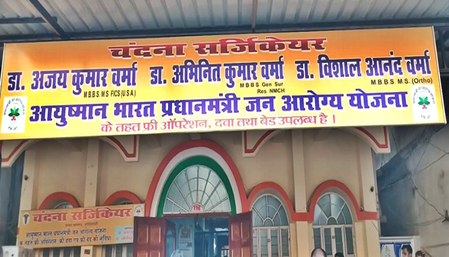New Delhi, Aug 31 (IANS) As the World Health Organisation (WHO) has urged countries to step up vigilance against monkeypox, the United Nations Children’s Fund (UNICEF) has also warned that it is essential to prioritise the needs of children in the fight against the pandemic.
The new variant of ampox (Clade 1B) is a cause for concern because of its tendency to spread to people of all ages, including young children. ampox is infecting thousands of children across the African continent.
According to the global humanitarian organization, children who are already suffering from malnutrition or some other disease are at greater risk of contracting ampox.
This virus spreads easily through physical contact or contact with the fluids coming out of the body of people suffering from this disease. Apart from this, it can also spread by coming in contact with the things of the infected person such as clothes etc. There is also a possibility of spreading this virus by coming in contact with the mouth or saliva of an infected person. Also, if pregnant women get affected by this virus, there is a possibility of this virus spreading to the unborn child as well.
According to UNICEF, children get infected very quickly through their parents or family members. They are in close physical contact with these people and when these people develop symptoms of the ampox virus, children get infected very quickly.
The symptoms of monkeypox are similar to those of smallpox. They appear less severe in the beginning. These symptoms are like skin rash, fever, sore throat, headache, body ache, and fatigue.
The Republic of Congo alone accounts for more than half of all cases in children under the age of 15. In the most affected countries worldwide, widespread malnutrition, overcrowded living conditions, the presence of other infectious diseases, and limited access to health services make the spread of ampox a dangerous condition for children.
UNICEF said it is working with the WHO and other partners such as USAID and the FCDO to provide support to national governments in Africa.
UNICEF stressed, “Our response is comprehensive, with priority given to children, pregnant women, poor communities. Our priority is to stop the spread of the disease and address its secondary impacts on children and communities, such as child protection and school closures.”
–IANS
PSM/SKP






